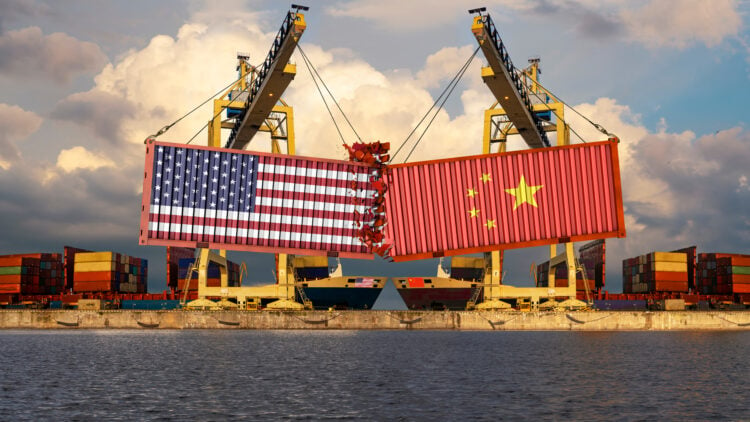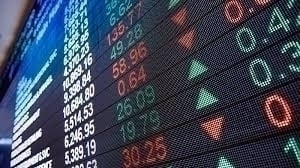Publisher: Maaal International Media Company
License: 465734
US, China to Resume Trade Talks With Focus on Rare Earths
The US and China are set to resume trade negotiations in London on Monday in a bid to further defuse tensions over rare-earth minerals and advanced technology following a phone call between leaders Donald Trump and Xi Jinping last week, Bloomberg reported.
Both sides have accused the other of reneging on a deal in Geneva in May, when they reached an agreement to at least temporarily lower tariffs that had climbed to more than 100%. After reaching an understanding with Xi on resuming flows of critical minerals, Trump said he expected the London meeting to go “very well.”
China said Saturday it approved some applications for rare-earth exports, without specifying which countries or industries were involved.
اقرأ المزيد
“We want the rare earths, the magnets that are crucial for cell phones and everything else to flow just as they did before the beginning of April, and we don’t want any technical details slowing that down,” Kevin Hassett, head of the National Economic Council at the White House, said Sunday on CBS’s Face the Nation. “And that’s clear to them.”
US-China trade tensions escalated this year as Trump hiked duties on Chinese goods, prompting retaliation from Beijing. While the Geneva deal was meant to pave the way for a broader de-escalation, subsequent talks quickly stalled amid mutual recriminations.
The US complained about a decline in shipments of rare-earth magnets essential for American electric vehicles and defense systems. China bristled at US restrictions on artificial intelligence chips from Huawei Technologies Co., software for designing chips, plane engines and visas for upwards of 280,000 Chinese students.
In London, US Treasury Secretary Scott Bessent, Commerce Secretary Howard Lutnick and US Trade Representative Jamieson Greer will meet a Chinese delegation led by Vice Premier He Lifeng. The addition of Lutnick, who’s in charge of curbs on the sale of advanced technology, signals Trump may be willing to consider reversing some of the restrictions that threaten to hobble China’s long-term growth ambitions.
While the call between Trump and Xi last week generated some hope on Wall Street for lower duties between the trading partners, investor optimism was limited. While promising to reshape US trading relationships, Trump so far has reached only one new trade agreement — with the UK.
Trump’s reprieve on US tariffs for Chinese goods runs out in August, unless he decides to extend it. If deals aren’t reached, the White House has said Trump plans to restore tariff rates to the levels he first announced in April, or lower numbers that exceed the current 10% baseline.
The confusion after the Geneva meeting underscored the challenge of deal-making between China and the US.
“They left too many things open to interpretation and they all paid the price for it in the intervening weeks,” said Josh Lipsky, chair of international economics at the Atlantic Council. The US and China “just want to get back to where they were in Switzerland with a few more agreements down on paper to actually understand what is gonna be licensed, what gets permitted, what doesn’t,” he added.
For now, Xi appears to be betting that a reset in ties will lead to tangible wins in the weeks and months ahead, including tariff reductions, an easing of export controls and a less-fraught tone. After the Trump call, Xi said he expects the US to “remove the negative measures taken against China.”
While Xi flexed his muscles with the rare earths restrictions, China’s economic woes — seen by persistent deflation and concerns about unemployment — give him reasons to come to strike a lasting deal.
A commentary that appeared in the official Xinhua News Agency on Sunday criticized the US for viewing economic issues through the lens of security, saying “this thinking will become the biggest obstacle to win-win cooperation among all parties if it is not adjusted.”
Yet it left the door open for relations to improve, adding that “China and the US share extensive common interests and broad space for cooperation, and the essence of the economic and trade relations between the two countries is mutual benefit and win-win results.”
After the two leaders spoke, the Chinese Foreign Ministry said Trump told Xi that Chinese students were welcome to study in the US. Trump later said it would be his “honor” to welcome them.
While the mood music is good entering the London talks, unlike the Geneva meeting there’s no urgency to reduce tariff levels, according to Adam Farrar and Michael Deng of Bloomberg Economics.
“This time around there’s no such low-hanging fruit,” they wrote in a report ahead of the talks. “With more complex issues on the table, it will be harder for either side to walk away with meaningful new outcomes.”
Related








